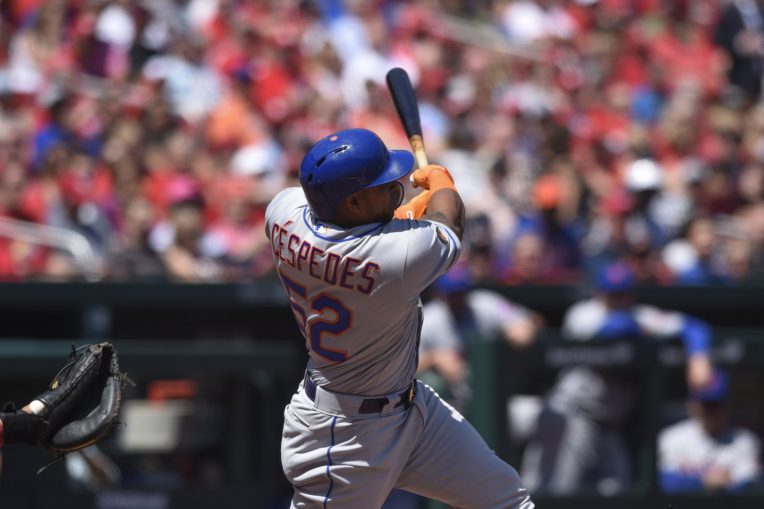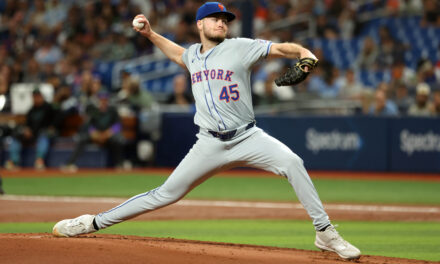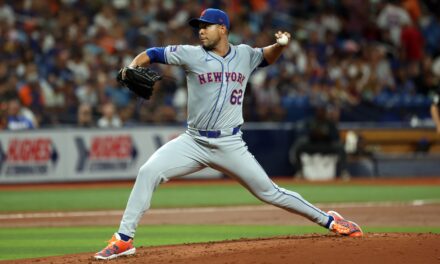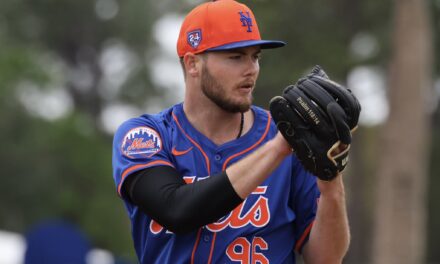
When Yoenis Cespedes agreed to restructure the remainder of his contract in 2019, he did so knowing that if he worked hard enough to overcome the numerous injuries that plagued him for years, he would make back most of the $29.5 million that was originally owed to him in 2020.
COVID-19 had other plans, forcing players to agree (and then re-agree) to prorated salaries for the shortened 60-game season.
Operating under the assumption that he will be on the Opening Day roster, Cespedes will have his new $11 million base salary reduced to $4.074 million.
But he did not agree to lose out on the ability to recoup the majority of his original salary. Cespedes’ renegotiated contract would have netted him up to an additional $9 million if he reached 650 plate appearances this year.
Obviously, that isn’t possible. 2020’s league leaders will likely approach 250 times at-bat.
We now have an official answer on how contract incentives are being handled this season. Unfortunately for Cespedes, he won’t sniff that $29.5 million even if he plays every inning on the Mets’ schedule.
According to Ken Rosenthal of The Athletic, Major League Baseball and the Players Association have agreed to prorate both the thresholds and payouts for performance and roster-based bonuses. In a 60-game season, the formula is (money)*(60/162).
That means the maximum Cespedes can earn in 2020 (excluding award bonuses) is $7.407 million. That’s if he’s on the Opening Day roster or injured list without a right foot or ankle injury and reaches 241 plate appearances.
On the other hand, players with vesting options (i.e., an additional year on a contract that only becomes guaranteed when a statistical threshold is met in a previous season) will have their statistical thresholds prorated but the dollar value on the option year remains the same.
For example, the Cubs’ Jon Lester can guarantee himself $25 million in 2021 if he works at least 74 innings this season. That’s because his option for next year would have originally vested at 200 innings.
Prorate it out, and it’s less work for the same amount of money. It’s almost impossible to fathom Lester, as a 37-year-old, commanding more than $25 million per year in free agency, so he’ll gladly exercise his option.
The Mets do not have any players with 2021 vesting options, but they do have a pair of relievers who can see the value of their player options increase with lower statistical thresholds this season.
Dellin Betances holds a $6 million player option for 2021, part of the bet-on-yourself deal he signed in December. If the 2020 season was normal, the value of the option would have maxed out at $9.8 million as soon as he made his 70th appearance.
Now, the dollar value won’t change. He’ll just have to do much less to get it.
Betances will see that option increase as he makes his 15th, 19th, 22nd, and 26th outings of the year, the final mark being prorated down from 70. Also remaining the same is the $3 million buyout that the he can take from the Mets instead, should he rebound to prove that he’s worth much more on the open market.
Similarly, Brad Brach will only need to make 24 appearances — instead of 65 — to max out his option escalators. Should he get there, the 2021 option will be worth $3.475 million.
Brach has yet to be in camp this summer for an undisclosed reason. If he’s unable to make it back and get into at least seven games, the option will remain at $1.25 million. In that case, he’s almost guaranteed to take it.
Mathematically, this all makes sense, as it’s unfair to hold players to literally impossible benchmarks. Relievers, as much as they might want to, physically cannot make 70 appearances in a 60-game season!
To their benefit, however, it will require much less wear and tear and physical exertion to be compensated.
Take Brach’s first threshold toward an increase in his 2021 option, for example. Seven appearances is mathematically proportional to 20 in a normal season, but it’s no different than pitching seven times in any random 60-game stretch over six months.
He could have been injured in game 18 and missed out on any salary escalators. Now, after seven jogs in from the bullpen, he’ll be rewarded just the same.
With the extreme health risks already present in playing during a pandemic, that’s a win (not prorated) that the union will most certainly take.














